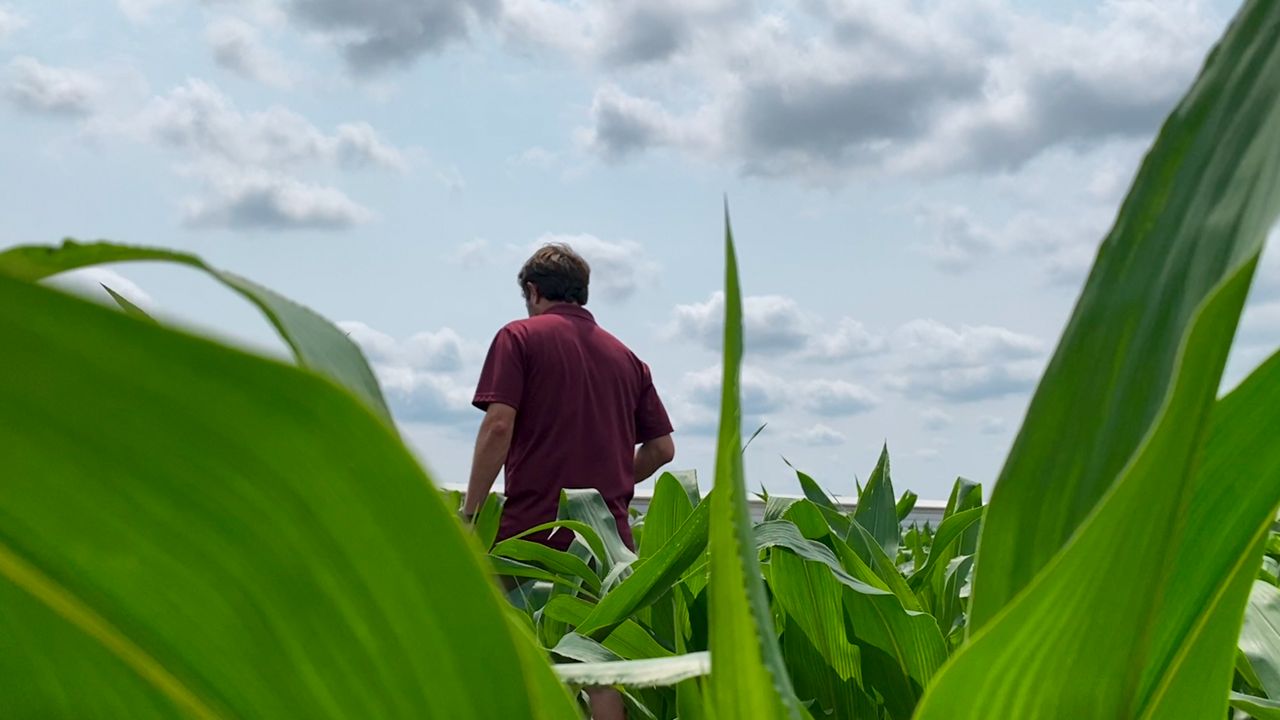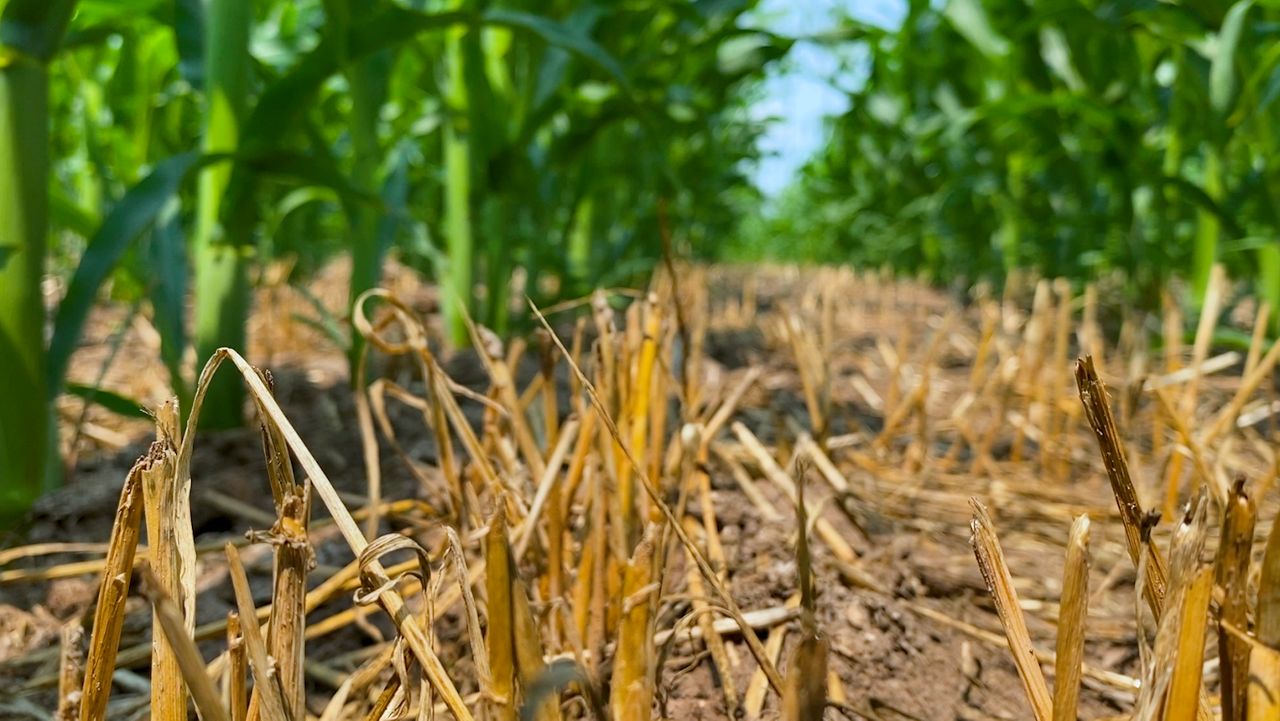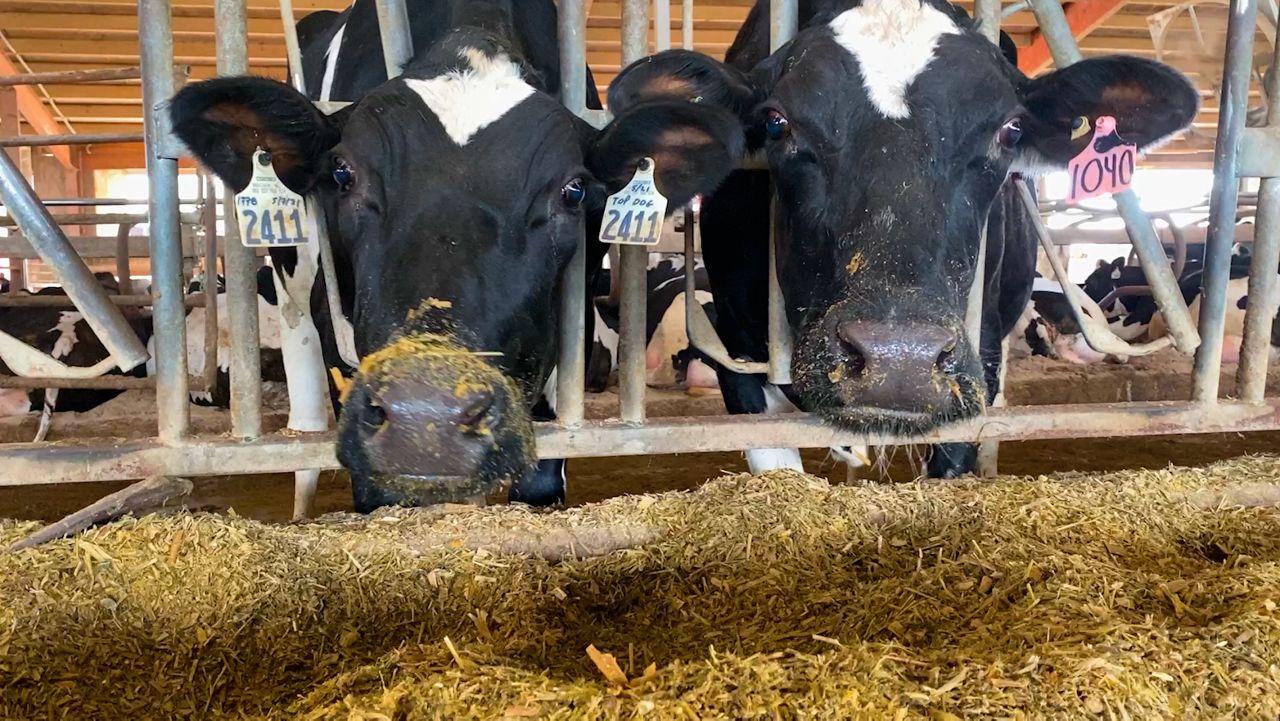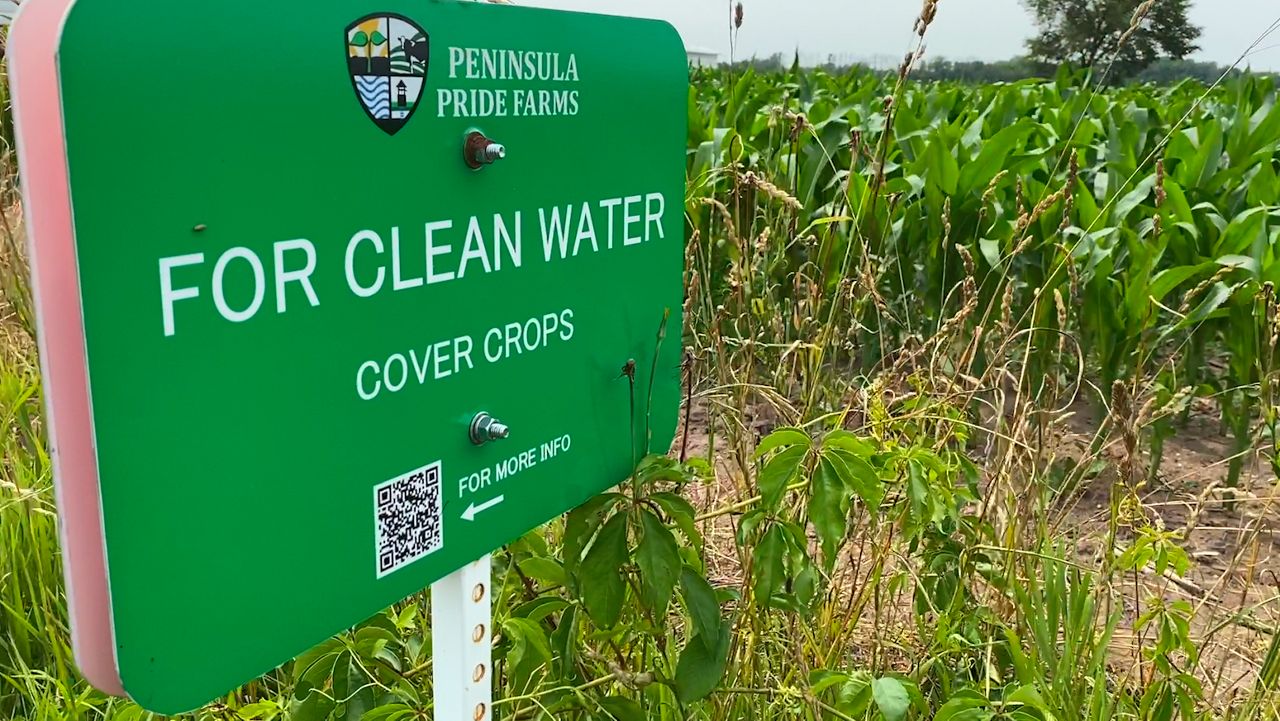STURGEON BAY, Wis. — A group of farmers in southern Door and Kewaunee Counties came together a few years ago to share ideas and practices to protect and improve their local water supply.
Jacob and Lauren Brey of Brey Cycle Farm were founding members of Peninsula Pride Farms in 2016.
Jacob Brey, a fourth-generation farmer, and his family worked his land outside of Sturgeon Bay for 120 years.
The farm originally included apple and cherry trees. Jacob Brey and his brother took over the operation and now mainly focus on dairy and beef cattle. Farmers and farming techniques have evolved over the years.

“We’re doing some things that are a little bit different as far as management of our land, but it’s helping us in difficult times when we have dry spells or hot or wet spells,” said Jacob Brey.
He said his fields endured 40 days without precipitation, but this corn, used to feed his 700 dairy cows, looked healthy.
Brey pointed to the ground, between stalks as the reason. Remnants of Triticale, a cover crop he planted last fall, are still visible.
“A corn crop that’s grown for silage is only in the field for 120 days a year, which is about a third of the time,” he said. “By having a cover crop the other two-thirds of the time, that’s important for minimizing the erosion potential.”
Triticale also has the benefit of being a food source for his cows. He claims his field is now 30% more productive. In the spring, Brey harvests the cover crop and plants the corn without plowing up the soil.
“There are only two or three days in the springtime and then a day or two in the fall when this ground doesn’t have something growing in it,” he explained. “That’s a way for us to always have living roots in the soil to help build soil carbon, increase the water holding capacity and organic matter in order to have a more healthy and productive soil.”

He learned techniques like this through Peninsula Pride Farms, an organization dedicated to improving water quality in agriculture. His wife Lauren said techniques like cover crops act almost like an insurance policy.
“Through the challenging wet year of 2019 and now the dry season that we’re having so far in 2023, we’re seeing the benefits of implementing conservation practices on our farm,” said Lauren Brey, who also works with Farmers for Sustainable Food.
“The real benefit here is that we’re talking with our neighbors, with others we are farming with, to understand what’s worked for them, what hasn’t worked, sharing those learned experiences,” she said.
Another technique they employ, tracking the genetics of their cows, helps produce healthy and more productive cows.

“We’re going to select sires that are going to sire calves, and then cows that are less prone to disease are more feed efficient. A cow that lives a long healthy life is a cow that gives good high-quality milk as well," explained Jacob Brey.
They found ways to increase production while protecting the land and local water supply.
“The climate’s changing, so we need to change our practices in order to continue to grow crops so we can feed our cows to make high-quality milk," said Lauren Brey.

Keeping their land and nearby water clean and healthy is a priority.
“Our cows drink the water that’s on the farm, our families do, we have neighbors around us, so it’s important for us to have clean water for everybody,” said Jacob Brey.
They learned some conservation practices that improved the local environment and, in a dry year, helped their bottom line as well.



